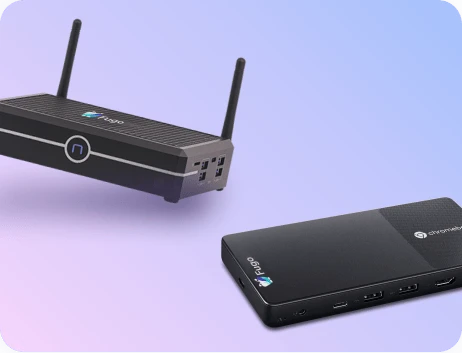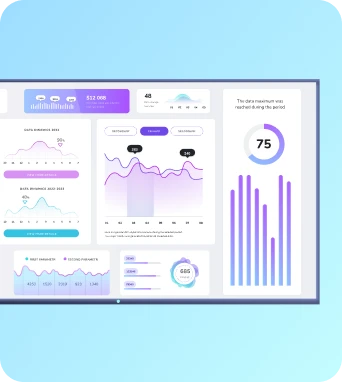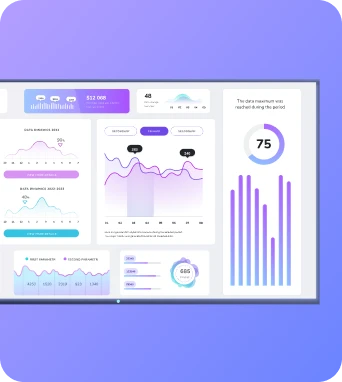The deskless workforce is nothing new — but that hasn’t stopped its need for innovation.
If you’ve been reading the news lately, you might have seen that a whopping four in five people now serve as frontline employees. Between such a large workforce and such rapid industry changes, the time has come to embrace new strategies that will serve the billions of people who serve billions more every day.
So what will the frontline employee experience look like in 2025? We’ve got a few ideas.
We’ll break them down in this comprehensive guide, all backed with solid science, recent studies, and hard data.
The future of the frontline employee experience: 2025 edition
More and more businesses are changing the definition of what it means to be a deskless employee. They’re also considering new strategies and technologies to make working on the front lines both faster and easier.
With this in mind, here are some ways the frontline experience will be changing, starting with the most obvious transformation:
1. Brace for AI (and lots more of it)
We get it—you might be tired of hearing about AI. But the reality is, artificial intelligence is here to stay and is set to play a significant role in the deskless employee experience by 2025.
AI isn't just about automating repetitive tasks; it's already being put to work in recruitment and onboarding. By automating resume screening and reducing biases, AI is helping organizations find the best candidates more faster & easier. This shift signals that the frontline workforce will increasingly rely on AI tools to stay ahead, re-skill, and adapt to new roles.
The numbers don't lie:
- The adoption of AI could push the automation of frontline work from an average of 50% to as much as 70% or more.
- 60% of the frontline workforce (or three in five people) say the use of AI saves them five hours of work per week by slashing repetitive tasks.
- Only 8% of organizations think AI will reduce their need for deskless workers. Instead, they plan to use these tools to reskill workers, which can help them adapt to new tasks and responsibilities.
By 2025, the WEF estimates that one in two workers will need new technology skills (i.e., AI skills) to stay ahead of the curve. This matters more than ever for the frontline workforce. Remember: we’re talking about 2.7 billion people here.
2. Expect to see more digital signage
You don't need a crystal ball to see that digital signage is going mainstream. The frontline workforce has been traditionally underserved, but with more widespread access to CMS tools, it's never been easier to keep the frontline connected.
More and more businesses are seeing the benefits:
- Digital signage creates frontline worker engagement. As many as 72% of frontline workers have a positive impression of internal communications on screens.
- Digital signage keeps the front line connected. From warehouse workers to the sales floor, it's quick and simple for employers to share information across their organization without having to send it through emails or company intranets.
- Digital signage moves the needle on your organization's objectives. Create content that can retain talent, promote mental well-being, and address safety concerns such as OSHA requirements.
💡Related: 5 Deskless Employee Engagement Case Studies
Digital signage is undergoing its own evolution to better serve the frontline workforce. Historically, the implementation of digital signage programs was very frustrating for managers — and 100% of surveyed organizations have faced technical, vendor, and cultural problems with their signage strategy.
At Fugo, we believe in taking the work out of digital signage so you can put it to work for the rest of your team. That's why we've made it easy to design or connect content in your browser, deploy it to any (or many!) locations worldwide, then use the screens you already own to share pertinent information with your teams.
Learn more about the future of digital signage and deskless workers.
3. Prepare for digital certifications

The college degree is becoming less and less important for today’s frontline staff. Instead, skills-based hiring is taking the stage, with digital certifications and competencies catching the limelight.
Surveys show that 45% of companies decided to eliminate their bachelor's degree requirements in 2024. Considering that 70% of these eliminations affected entry-level staff, it's clear the ol' cap and gown is becoming less important than it used to be.
What could be rising to take their place? Micro-learning and digital certifications, of course. They're not just five times more effective for students, but they're significantly less expensive in the era of rising costs.
Reconsidering educational requirements for new employees can help frontline business leaders stay competitive in the recruiting world. It can also make teams more diverse and inclusive.
Which leads to our next prediction:
4. See the rise of a new inclusive workplace culture
Redefining the qualifications for frontline employment has given rise to a new era of inclusivity. You no longer need student debt or an internship to get hired: you just need to show you have the skills to succeed.
Studies show that inclusive cultures lead to:
- A higher-quality employee experience
- A stronger sense of belonging
- Better employee feedback as a result
Plus, as many as 75% of diverse frontline teams actually exceed their financial goals.
If growing organizations want to stay profitable in 2025, they'll need to take actionable steps to keep their frontline teams inclusive.
5. Prep for flexible work arrangements
A major part of making employees feel valued is offering flexible scheduling that can accommodate their needs. Decision-makers aren't blind to this, either — which is why more flexible schedules are coming to frontline work.
There are three principles of flexibility that are already gaining traction:
- Flexi-place: Frontline workers can select different locations to work, which makes it easier to source talent for multiple locations and keep your entire company both flexible and well-staffed.
- Flexi-time: Frontline workers can select a time range for their shifts, which enables them to plan their personal lives around work and limits any confusion about their shifts or expectations.
- Flexi-load: Frontline workers can set a cap on their hours, which helps maintain their work-life balance and ensure a positive employee experience.
According to Gallup, some frontline teams are exploring four-day work weeks to see if extra flexibility could boost morale and productivity.
If you're a frontline worker or lead a team of frontline workers, better work-life balance could be right around the corner.
If you're a human resources manager, get ready for major changes. Because accommodating frontline employee’s flexibility will be a critical factor in retaining talent.
So where do we go from here?
There's a lot on the horizon for deskless employees. Regardless of your industry, you'll need to keep a finger on the pulse.
Because we've barely scratched the surface of what the frontline experience will look like in the future. Are you positioned to get ahead of the curve?
While you can’t predict the future with 100% accuracy, you can get ready for the coming shifts. Preparing yourself for the changing tides will give you a competitive advantage by allowing you to innovate more quickly in an increasingly competitive field.
If you're still on the hunt for more deskless worker resources, we've got a few that might catch your eye:
- Frontline Trends & Predictions To Future-Proof Your Workforce
- How Organizations Can Fill the Technology Gap for Their Deskless Workers
- How To Drive Data Adoption Among Frontline Workers
- How to Create a Dashboard in Power BI for Frontline Teams
- Frontline Workers are Different: Here’s How to Engage and Retain Them





